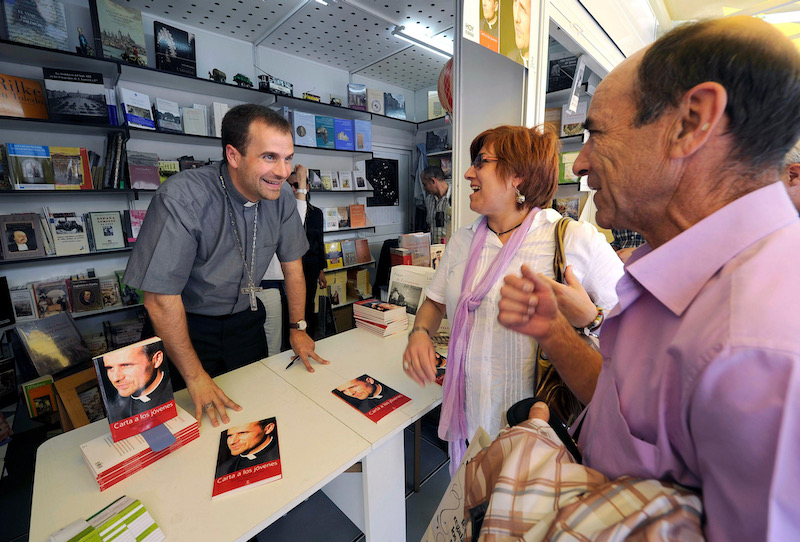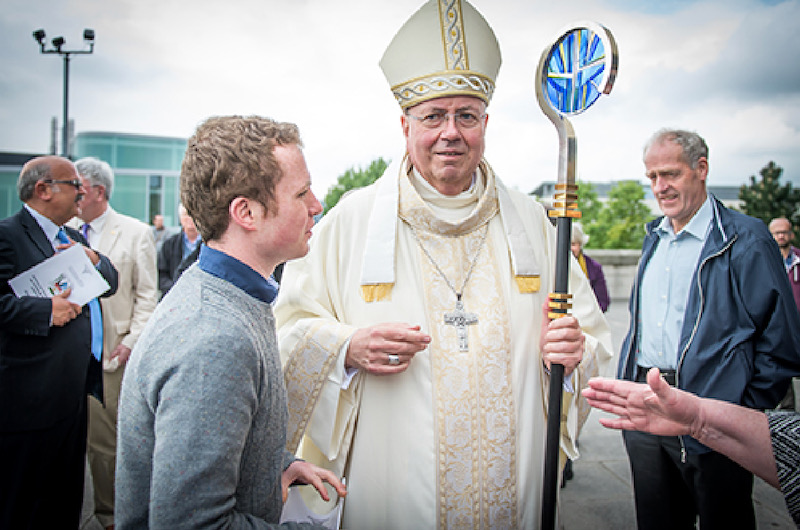Archbishop of Liverpool Malcolm McMahon said he would encourage those who believe the Church in England and Wales should hold a national synod.
Speaking at The Tablet discussion, A synodal Church: what does it mean? Archbishop McMahon, who oversaw the 2020 Liverpool synod, backed the synodal path for the Church and suggested that without it, the Church was facing “a very diminished, narrow future”.
The other speaker at the webinar was Dr Myriam Wijlens, Professor of canon law at Erfurt University in Germany and a consultor to the synod of bishops’ office in Rome.
She said the preparations for a synod for a synodal Church was “the next chapter in the reception of Vatican II”.
On the possibility of a national synod in England and Wales, Archbishop McMahon said it would be interesting to see the way it develops, “because we all move at a different pace, and some dioceses would be more reluctant to start the process. Others are already ahead.” He said those dioceses which were a bit slower to embark on a diocesan synod would feel encouraged by those that are moving faster and more steadily.
Asked if he believed the people of Liverpool felt listened to in their synodal process, the Archbishop said: “Yes, I think so. We didn't discard anything that was sent to us. We put all the thorny issues which we can’t really deal with in a decisive way locally, like women's ordination, we put them to one side for the time being. But I promised the members of the synod that I would talk to people in Rome about these rather difficult issues.”
He said he had noticed over the last few years that those in Rome who run the different departments are more open to hearing what a bishop has to say whether it is in relation to a tricky situation or not.
“I would not like anyone to think that their opinion or a particular movement within the Church is being pushed to one side. I do think that nothing now is off the table.”
Archbishop McMahon also responded a comparison suggesting that the Liverpool synod was a “pale shadow” of the more radical Root and Branch Synod currently taking place in Bristol.
While praising the Root and Branch Synod as “a very interesting exercise in consultation” and respecting what the organisers are trying to do, he said: “If you have something which is only a part of the Church, part of the Church which hasn't been heard in the past, but only part of the Church, then I don't think it has really got much force.
“The whole point about a Synod is that you have to be on the road together. The Root and Branch (synod) needs to connect with the bigger journey which everybody else is on. I hope they will find a way to link with the consultation which is going on in all the dioceses at present for the Synod in 2023. I’m sure that they will be listened to, and their contribution will be worthwhile.”
He turned the suggestion that the Liverpool Synod was a “pale shadow” of the Root and Branch Synod on its head and said he would put it the other way round.
“They (Root and Branch) are actually a pale shadow of what we (Liverpool) have tried to do because they don’t represent the Church – they represent some members of the Church – and certainly members who need to be heard. But we are the local Church and we have tried to be as inclusive as possible. So, I think we’re probably the real thing.”
Asked about the lessons learned from the process in Liverpool, Archbishop McMahon cited three lessons which emerged from their planning for the future in the “very difficult, modern, changing world”.
The first lesson, he said, was to avoid thinking that the Holy Spirit is a tap that can be turned on and off, or to be found only in documents and legislation. “The Holy Spirit lives within the community and we have to find a way of receiving and understanding the Spirit.”
The second lesson to learn is how to listen. “That doesn't just mean listening to the Spirit within us in our moments of quiet, but listening to each other. That’s very hard to do. We all have got something very important to say, and very often it’s a case of who shouts the loudest is heard. We had to get help from various people to help us learn to listen.”
The third lesson was what to do with all the ideas and the suggestions that come up. Over 50,000 suggestions and 20,000 written statements were received in Liverpool. This was eventually whittled down to 19 recommendations.
“So, the number one lesson is to learn to take time and to be patient until we agree to learn from each other as well as from your own experience and ideas.” The process in Liverpool was “very much an ongoing process” he said and added that the people and diocese had been renewed by the process of the Synod itself.
“We’re now sorting out the pastoral plan for the diocese which we will launch on the first Sunday of Advent,” he said.



 Loading ...
Loading ...